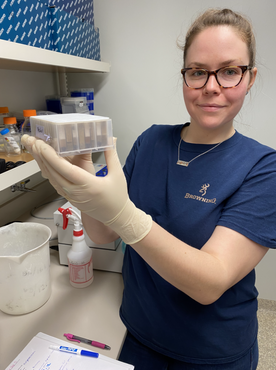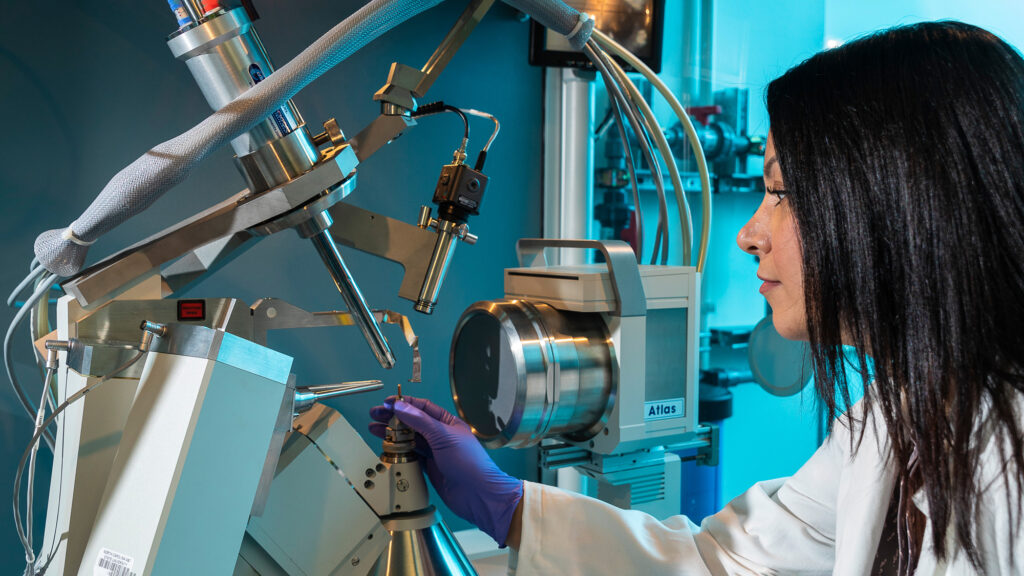Alyssa Young, a PhD student in Biology working with Dr. Sally Koerner, has been awarded a prestigious Predoctoral Fellowship from the US Department of Agriculture. The award, which is for three years and totals $180,000, provides a stipend, tuition, and funds for travel and research supplies. Young’s project is titled, “Understanding symbiotic nitrogen fixation in longleaf pine savannas to enhance production.” Learn more about her research on her website.
Project Abstract
The longleaf pine (LLP) savanna of the Southeast US covers a mere 3% of its original 92-million acres and is in dire need of restoration. As a fire dependent ecosystem, productivity of the understory enables fire spread, maintaining ecosystem health and function. Thus, the vegetation-fire feedback loop is a primary restoration goal. Yet fire also creates resource constraints as nitrogen (N) is lost to the atmosphere during biomass burning. Legumes have the potential to overcome N-limitation through forming a symbiosis with N-fixing bacteria (rhizobia). Rhizobia live in root nodules and fix atmospheric N, and in return, legumes provide rhizobia with shelter and photosynthates. This symbiosis has potential to be a useful tool in the restoration of LLP savannas, as rhizobia facilitate the return of bioavailable N after losses from fire, thereby increasing understory productivity and ensuring the return of the vegetation-fire feedback loop. The legume-rhizobia symbiosis could eliminate the need for fertilizers while still promoting ecosystem productivity and fire spread, thus contributing to the long-term sustainability of LLP savanna restorations and minimizing the environmental management footprint. However, the drivers of N-fixation rates and the utility of rhizobia inoculations have not been explored. Here, the proposed research aims to (1) determine biotic and abiotic factors driving N-fixation, and (2) assess how rhizobia inoculations influence N-fixation, plant productivity, and N-content.






